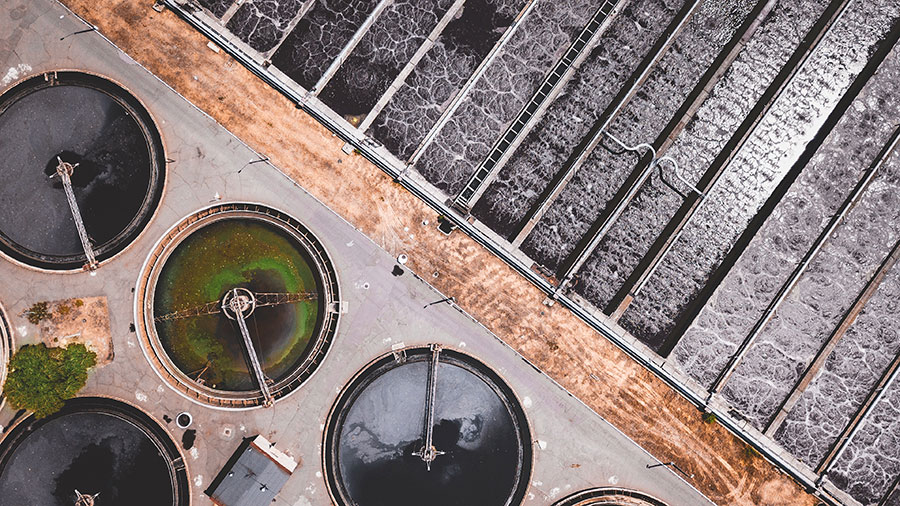
The amount of untreated wastewater is immense and has a major effect on sustainability. Industries continuously use freshwater as cooling and solvent to enrich the quality of their products. Directly exposing this used water to the environment can seriously intoxicate it. Combine this with poor recovery technologies, pollution and contaminants, environmental degradation, and potentially irreparable damage.
In addition, the problem of water scarcity is growing every year, and it makes sense to treat wastewater to meet the enormous need for this resource. Innovation is necessary to supplement these shortages and reduce the effect of untreated wastewater on the environment.
Recycling and recovering water
The long-term solution does not lie in drastically reducing water consumption but rather in innovative technologies and practices in wastewater management and treatment. A wastewater treatment system removes toxic and harmful waste from the water, reducing the risk of water pollution and the impact on the environment. This water can be reused for general and industrial purposes.
The recycling and recovery of water and its purifications are sustainable, safe, cost-efficient, and reliable methods to supply water for various purposes. However, this system faces some challenges, such as the inability to automatically optimize processes for varying water contamination and flow, the variation in chemical volume adjustments and water chemistry needs. IoT can serve as a tool to overcome these challenges.

Monitoring purification activities
IoT enables the concerned authorities to closely monitor the activities in the water treatment plant. IoT in water treatment uses the concept of smart sensors installed at various points in the water system. These sensors can monitor multiple parameters of water, such as temperature, pressure, and chemical composition. This data is sent to a platform where this data can be analyzed, and purification activities can be managed and automated.
Benefits of IoT in wastewater management
What are the benefits of IoT in wastewater management? First, IoT can help detect harmful chemicals in the water. Specific treatment processes can also be chosen using the insights obtained from the wastewater. The advanced analysis functions that are part of IoT solutions can recommend a range of suitable treatment processes based on the concentrations of chemicals. This ensures that the processes in the treatment plants are optimized and that the operating costs are reduced. IoT also helps with equipment monitoring and detecting, or even predicting, equipment problems. This supports good maintenance of equipment and machinery, and ensures that the treatment process never stops due to a sudden failure.
Do you want to know more about how IoT can help in managing water more sustainably? Download our whitepaper.
